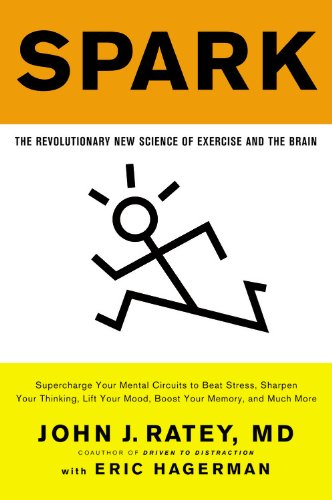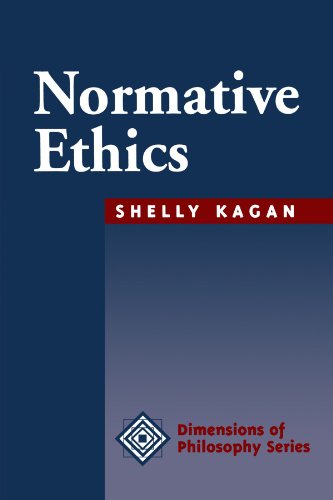Top products from r/Ethics
We found 14 product mentions on r/Ethics. We ranked the 12 resulting products by number of redditors who mentioned them. Here are the top 20.
1. Practical Ethics
Sentiment score: 2
Number of reviews: 2
Cambridge University Press
 Show Reddit reviews
Show Reddit reviews2. Moral Failure: On the Impossible Demands of Morality
Sentiment score: 0
Number of reviews: 1
 Show Reddit reviews
Show Reddit reviews3. Better Never to Have Been: The Harm of Coming into Existence
Sentiment score: -1
Number of reviews: 1
Oxford University Press USA
 Show Reddit reviews
Show Reddit reviews4. Why Have Children?: The Ethical Debate (Basic Bioethics)
Sentiment score: 1
Number of reviews: 1
 Show Reddit reviews
Show Reddit reviews5. The Wizard and the Prophet: Two Remarkable Scientists and Their Dueling Visions to Shape Tomorrow's World
Sentiment score: 1
Number of reviews: 1
 Show Reddit reviews
Show Reddit reviews6. Spark: The Revolutionary New Science of Exercise and the Brain
Sentiment score: 1
Number of reviews: 1
Spark The Revolutionary New Science of Exercise and the Brain
 Show Reddit reviews
Show Reddit reviews7. Justice: What's the Right Thing to Do?
Sentiment score: 1
Number of reviews: 1
Farrar Straus Giroux
 Show Reddit reviews
Show Reddit reviews9. Emotional Design: Why We Love (or Hate) Everyday Things
Sentiment score: 1
Number of reviews: 1
Basic Books AZ
 Show Reddit reviews
Show Reddit reviews10. Normative Ethics (Dimensions of Philosophy)
Sentiment score: 2
Number of reviews: 1
Used Book in Good Condition
 Show Reddit reviews
Show Reddit reviews


First, congratulations!
I'm a Design Studies grad student, so the ethics of objects is something that I might be able to help with. It sounds to me like you've got a flurry of concerns, and could use a compass to point you in the right direction.
Here's a miniature framework:
Your answer might differ, but for me, the answer to #1 is something along the lines of, "Evoke the emotions you feel for each other." There is no blueprint for designing sentimental-on-the-shelf objects, but there is literature on how to design objects that encourage owners to make them sentimental. Emotional Design: Why We Love (or Hate) Everyday Things by Don Norman is respected and accessible. Engagement rings certainly aren't everyday objects, but I think it'll help reveal what qualities of the object will facilitate the intended emotional purpose of the object. My gut feeling is that for you and your significant other, a diamond would be a counterproductive choice because the diamond itself would evoke values that you know your partner finds abhorrent. A simpler example might be that if you know your partner is allergic to mint, then buying them mint ice cream can easily be hurtful because the object (mint ice cream) evokes negative emotions (not listening, or not caring).
As for #2, it sounds like you already know some things that you find ethically intolerable. The solution must not be environmentally unfriendly, support unfair labor practices, or otherwise be unsustainable. I'm also sure that there are non-ethical considerations as well (budget, your partner hates the color red, etc).
Once you've pinned down some clear goals and showstoppers, you can begin imagining and comparing possible solutions. What if you sourced the material components during a trip? What if you and your partner went to a workshop and made the rings for each other by hand? What if the rings didn't have a centerpiece gem at all? You can come up with a whole bunch of idea that will achieve the goals while avoiding the showstoppers, but first you have to identify the goals and showstoppers. You already skipped ahead to the generative phase, so after you get them written down, I think you'll be fine.
And since this is /r/ethics, I'd absolutely encourage you to pick up a book like Normative Ethics by Shelly Kagan. Ethics is one of those fields where everybody thinks they're an expert because they're confident in their collection of opinions, but it really is helpful to get away from "Is it ethical?" and toward "Is it ethical according to utliatarianism/deontologicalism/virtue ethics/egoism/whatever?" Different ethical theories will give you different answers to any question, so asking "Is it ethical?" without defining an ethical theory is sort of a trick question in a forum devoted to the academic field of ethics. In the context of your original question, I think knowing which specific ethical theory you subscribe to will hell you pinpoint what are and aren't requirements for your solution.
Good luck!
Yes, very much so. Exercise has many many benefits for both your body and mind. There is an excellent book on these benefits called Spark that delves into some of the brain benefits and mood elevating effects of exercise.
Anecdotally I have found that many adventure sports enthusiasts believe in helping their fellow athletes as an ethical imperative. Many races emphasize this as a key aspect of the event.
Each of these events are wildly popular and attract people from varying backgrounds.
> Where can i learn about ethics?
Reading about different ethical philosophies online. Reading books on ethics. Even getting involved in discussions here, /r/askphilosophy, /r/philosophy, /r/smartgiving, etc.
Practical Ethics is the book that has had the biggest impact on the way I reason about ethics. Before that, whereas I saw that reason could help us identify contradictions in our ethical views, I didn't see how any particular ethical philosophy had a solid ground to build its conclusions from beyond coming "from the heart" as you said. This book was the one that gave me hope that we can do better than mostly guessing when picking our starting point.
However, I'm still an ethics noob and there's a lot more for me to read before I can have a very substantiated opinion on what is best.
> How do you KNOW what is right or wrong?
I doubt we can know with 100% certainty. We can't empirically test our meta-ethical beliefs, but we can still apply reason to it, like we do with many other aspects of our life to try to work out the truth.
> Does it really just come "from your heart"?
I assume by this you mean from our intuitions or subconscious? I think that's where most ethical decisions are made from, but it probably shouldn't be entirely from there. The more we learn in general, the more we realize that our intuitions provide rules-of-thumb at best, but can often be wrong. For instance, it seems unintuitive to me that planes can fly, or massive ships can float. So if I really want to know the truth about the world, I don't think I should rely only on my intuitions. Plus, thought experiments like the trolley dilemma show that our ethical intuitions can be contradictory.
> Do you carry the same beliefs that your parents have implanted?
No, but I would expect this to be a major factor, just as it is for people's beliefs about anything.
> Have you learned from an institution of higher education?
No.
It's pretty questionable whether he was right, that randomly removing half of the people would suddenly create utopia. There's actually a recent book out, The Wizard and the Prophet, about two influential thinkers on either side of that question - "The Prophet" arguing that resources are finite and we must seek to decrease our footprint dramatically, and "The Wizard" claiming that innovations will allow us to be both numerous and prosperous.
So: there's arguments to be made on either side there, and I recommend the book if you want to delve into them in detail. (Additionally, though, is Thanos planning on coming out of his retirement cabin once every 50-100 years to close his fist again? It doesn't take that long to regain population.)
Now, over all of this, there's always the question of whether, assuming he was right and could actually be proved to be empirically right, is he justified in killing 50% of people in order to bring greater prosperity to the other 50%? This is one of those perennially debated questions where people generally say "no, murder is wrong". However, in this case, Thanos was committed to murdering 50% of the population of the universe regardless - he'd been running planet to planet, slowly, inefficiently, terroristically gunning half the people down. Given that he was committed to this action regardless, I kind of have to agree with Thanos that just using the glove is probably more ethical than personally wringing every other person's neck individually.
"Justice: What's the right thing to do?" by Michael Sandel is a good book for an overview of different approaches to ethics.
"Practical Ethics" by Peter Singer is the one that really first made me think there's good reason to pick a side.
I read a book on this recently, I would recommend it to anyone interested in this topic: http://www.amazon.com/Why-Have-Children-Ethical-Bioethics/dp/0262016982/
https://www.amazon.co.uk/101-Ethical-Dilemmas-Martin-Cohen/dp/0415404002
Short answer: https://mises.org/library/anatomy-state
Long answer: https://www.amazon.com/Problem-Political-Authority-Examination-Coerce/dp/1137281650
This has been on my reading list for a while: http://www.amazon.com/Moral-Failure-Impossible-Demands-Morality/dp/0199396140/ref=sr_1_1?ie=UTF8&qid=1448063376&sr=8-1&keywords=moral+failure
I'd guess you should talk to her and let her know that you know. Otherwise I'd assume she's carrying around guilt about not telling you, which has no value since you now know it happened.
Also, thank the older brother for paying. It is not good for babies to be born into the sort of chaos you're describing emerging from.
Edit: Pennebaker's "Opening Up" describes the negative health consequences of carrying secrets around. I expect her to incur those consequences if she's keeping the abortion secret from you.
Eventually maybe, but advocating for it in the current context appears to assume that mayor ecological desasters are primarily a matter of some kind of overpopulation. I think this assumption is wrong, and ecological problems are instead much closer tied to the problems inherent to capitalism. Also almost all current shortages of resources are due to commodification of goods much rather than objective physical scarcity.
Besides that point, I’d personally be much more intrigued by a zero-child rule, though not because of ecological or economic considerations or even plain misanthropy.